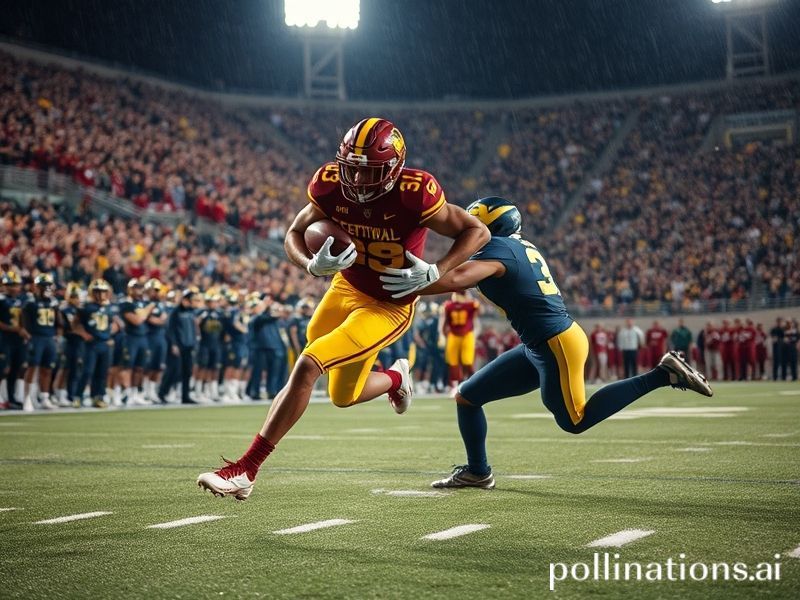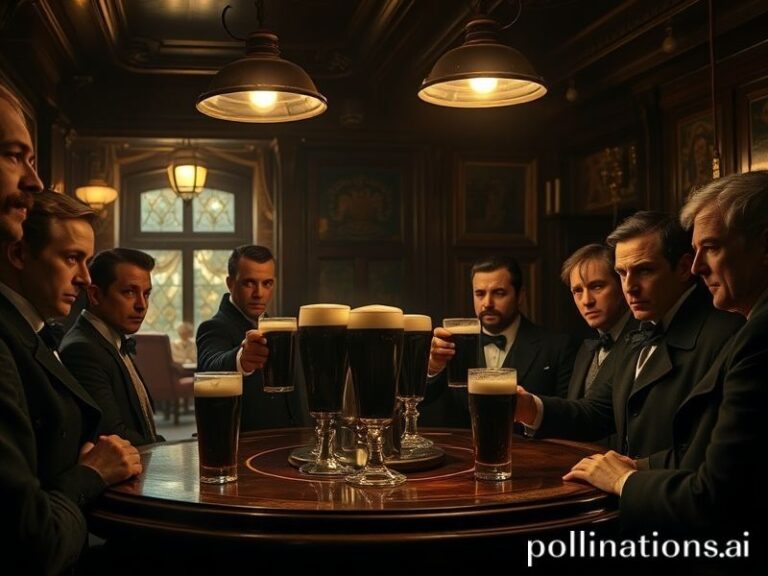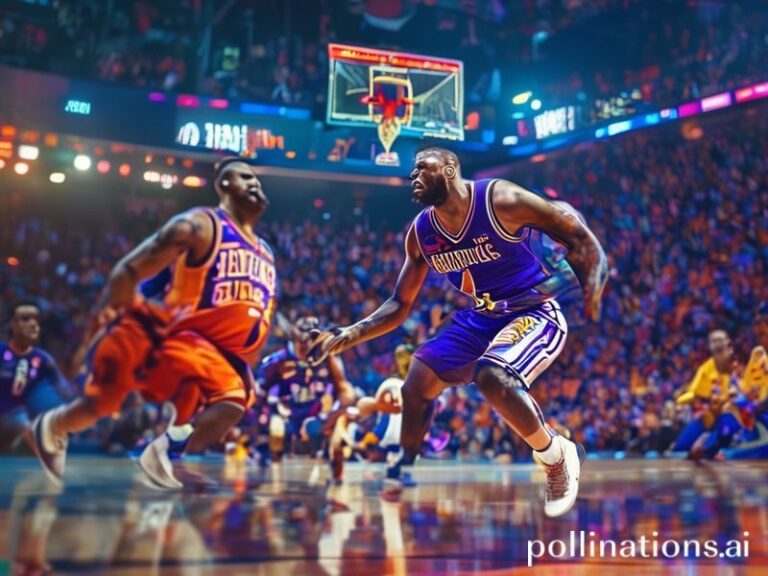David Takes the Points: How Central Michigan vs. Michigan Became a Global Parable of Modern Inequality
The World Watches Central Michigan vs. Michigan, or: How We All Learned to Stop Worrying and Love the Mid-Major
By L. Marlowe, International Desk, somewhere between despair and a Marriott minibar.
From the banks of the Tigris to the glass towers of Singapore, humanity awoke last Saturday to discover the globe’s most pressing geopolitical fault line was no longer Taiwan Strait shipping lanes but rather a 100-yard rectangle of AstroTurf in Ann Arbor, Michigan—where the Central Michigan Chippewas, pride of Mount Pleasant (population: 21,000, roughly the same as Liechtenstein on a slow Tuesday), squared off against the University of Michigan Wolverines, a football-industrial complex so storied it could probably qualify for G7 membership if it ever bothered to apply.
Why should a Belgian bond trader, a Lagos ride-hailing driver, or a Seoul crypto-miner care? Because the game served as a live demonstration of how the modern world distributes hope, hype, and humiliation with the ruthless efficiency of an Amazon warehouse. Central Michigan arrived as the designated sacrificial lamb—cashiered in for a $1.8 million guarantee, the collegiate equivalent of selling a kidney on the dark web. Michigan, meanwhile, entered ranked No. 2, fresh off a marketing campaign that painted its offensive line as the new Maginot: imposing, expensive, and—if history is any guide—liable to be outflanked when it matters most.
The first half played like a World Bank structural adjustment program: all the resources on one side, all the dignity on the other. Michigan’s quarterback looked like he’d been conjured in a Goldman Sachs lab: 6’4″, laser-etched jawline, and a NIL valuation rumored to rival the GDP of Fiji. Central’s QB, by contrast, still shares a two-bedroom with three biology majors and a gecko named Carl. Yet by the third quarter the Chippewas had clawed to a 10-10 tie, and somewhere in Brussels an EU trade negotiator watching on a cracked laptop whispered, “My God, they’re Greece and the Trojans rolled into one.”
International audiences recognized the script immediately: plucky underdog leveraging ingenuity, caffeine, and the faint hope that the giant trips over his own supply chain. CNN International cut in with a chyron—“BREAKING: POSSIBILITY OF AN ACTUAL UPSET”—while Russian state TV spliced the feed with commentary suggesting this is what happens when decadent Westerners overextend. Al Jazeera ran a ticker comparing CMU’s third-down conversion rate to Gaza’s electricity uptime; both numbers, grimly, held steady.
The final scoreboard read 41-17 in Michigan’s favor, but only the naïve believed the story ended there. The true global takeaway was subtler: the Chippewas covered the 34-point spread, thereby rescuing a hundred offshore sportsbooks from the sort of liquidity crisis that usually requires an IMF bailout. In Manila, bookmakers lit incense to the pagan gods of backdoor covers. In Zurich, algorithmic traders tweaked volatility models based on “late-game garbage-time touchdowns,” a phrase now entering quantitative finance lexicons alongside “contagion risk.”
Meanwhile, the broadcast itself became a soft-power referendum. ESPN’s feed reached 167 countries, where commentators translated “Harbaugh” into languages that don’t even have a word for khakis. Viewers in Jakarta saw Michigan’s marching band spell out “GO BLUE” and wondered if this was code for rare-earth mineral prices. Somewhere in the Arctic, a climate researcher monitoring glacial melt noted that the carbon footprint of Michigan’s private jet fleet for recruiting trips could single-handedly drown the Maldives, then returned to logging data with the weary shrug of someone who knows the planet lost overtime decades ago.
Back in Mount Pleasant, students celebrated moral victory by uprooting a goalpost and depositing it in the Chippewa River—a ritual that looked, to European eyes, suspiciously like Brexit but with better hydration. Across the Atlantic, Oxford dons added a new footnote to the classic David-and-Goliath syllabus: “See also Central Michigan, 2024, when David took the points and bought the bar a round.”
So, what have we learned? That the world remains a rigged casino where the house usually wins but occasionally lets the little guy keep enough chips to believe the game is fair. That American college football is less sport than serialized geopolitical theatre—equal parts arms race, soap opera, and telethon. And that somewhere in a smoky dorm lounge, a kid from Central Michigan is telling his roommate, “Next year we get them on our field. Bring the bolt cutters.” The rest of us, from Reykjavik to Riyadh, will tune in, because hope—like compound interest and student-loan debt—accrues globally, even when it’s wearing a second-hand helmet.







